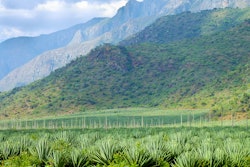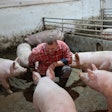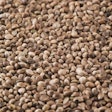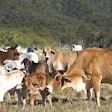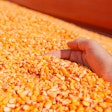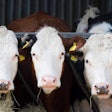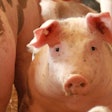
Brazilian exports of poultry and pig meat, genetic material and eggs have gained significant market share globally over the past decade, and 2024 continued this trend. At almost 5.3 million metric tons (MT), broiler meat exports by volume were 3% higher, worth US$9.9 billion, an increase of 1.3%.
According to president of the Brazilian Association of Animal Protein (ABPA) Ricardo Santin, 2024 was a year of "progress."
Meet and greet
The latest ABPA annual report reveals that the association had a full agent last year where promoting Brazilian protein to overseas markets was concerned.
The poultry and swine sectors, with the association’s support, received 32 international technical missions with the aim of opening new export markets, or increasing recognition from those markets already importing Brazilian protein. Additionally, there were various audits of the country’s compartmentalization and regionalization systems, for both poultry and swine.
Last year saw mission visits from importers including China, the EU, the U.K., Japan, Malaysia, the Caribbean Community and Common Market (CARICOM), Mexico, Argentina, and Chile, inspecting slaughterhouses and production units for poultry, swine and eggs.
Overseas operations
Through sectorial projects with Brazilian Trade and Investment Promotion Agency (ApexBrasil), ABPA also promoted the image of Brazilian animal protein in various target markets.
The initiatives covered five international brands, Brazilian Chicken, Brazilian Pork, Brazilian Egg, Brazilian Genetics and Brazilian Duck. Together, across large trade shows and through targeted initiatives, Brazilian animal protein was promoted around the world last year.
2024 saw the two bodies take part in six trade fairs with a significant direct impact – the generation of US$395.5 million in direct business and expectations of a further US$3.5 billion.
ABPA also organized a tasting event as part of the Seventh Plenary Session of the High-Level Sino-Brazilian Commission on Consultation and Cooperation, and at the General Assembly of the World Organization for Animal Health (WOAH), the latter to celebrate the country being free from African swine fever for 40 years.
During food processing trade show Sial Paris, the association contributed to an event on female entrepreneurship in animal protein, comprising a photography exhibition and testimonials of, and from, women working in the sector.
Five embassy events, in Algeria, Peru, India, Mexico and the Dominican Republic were also organized, welcoming local importers and stakeholders.
Within its home market the association has its own International Salon of Animal Protein (SIAVS).
Highs and lows
2024 saw Brazilian exports of poultry meat to Asia increase by almost 32%, but not every market was a success story last year. Exports to China, for example, the largest export market for Brazilian broiler meat, fell by almost 18% by volume.
Despite the latter, Ricardo Santin, ABPA president, notes that 2024 was a more favorable year for the Brazilian industry – a year of progress.
The sector not only increased its total shipments abroad, consolidating records for both producers and exporters alike, but also saw domestic consumption rise. And, while noting that costs were higher than the industry would have liked, this did not harm the sector’s competitiveness, he continues.
2024 did, however, have its share of challenges. Pointing to the occurrence of an outbreak of Newcastle disease in the state of Rio Grande do Sul, which accounts for almost 13.5% of the country’s broiler meat exports, the industry suffered a moment of significant anxiety. However, the situation was quickly addressed nationally while international negotiations were ongoing.
Santin notes that the occurrence strengthened the importance of biosecurity among producers, while noting that Brazil has never recorded an outbreak of avian influenza.




